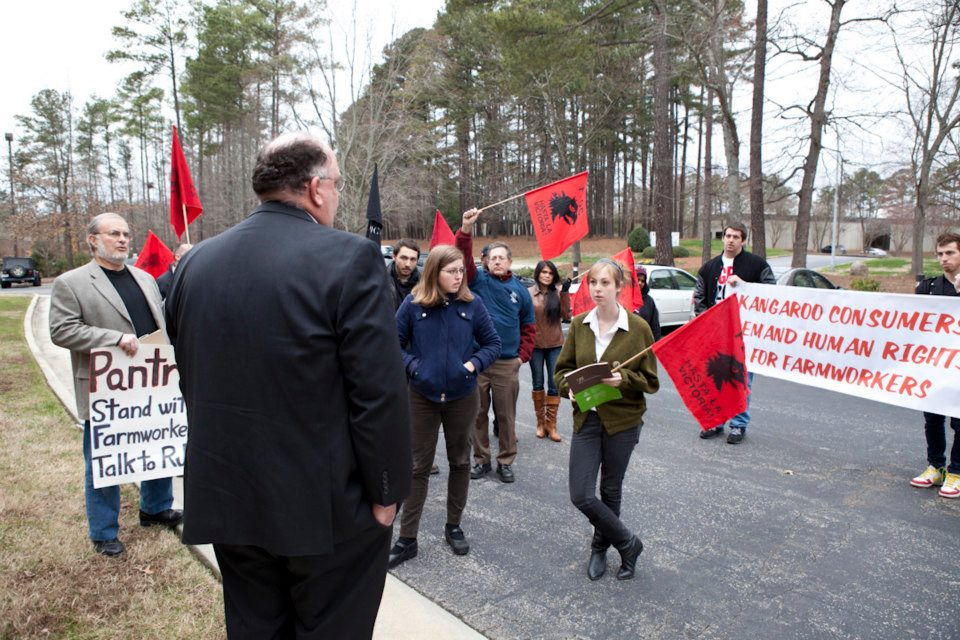Student Farmworker Solidarity
 Friday, October 10, 2014 at 12:20PM by
Friday, October 10, 2014 at 12:20PM by  Jennie Belle
Jennie Belle Why should students care about farmworker issues?

By: Catherine Crowe, SAF Intern
Most students will agree that farmworker oppression is appalling and that farmworkers should be treated better, but they generally see farmworker justice as an issue as distant from their own lives as, say, sweatshop labor in Bangladesh. In many ways, this distance is real. Farmworkers and students live physically in different spaces and are even subject to different laws. Farmworkers and students live such entirely different lives that one has to ask: is food the only connection that students have to farmworkers? While students should be conscious consumers, there is a connection between farmworkers and students that goes beyond a simple producer-consumer relationship.
During my second year of college at UNC-Chapel Hill, I joined a campus organization called Alianza that focused on farmworker justice. We worked with the Farm Labor Organizing Committee (FLOC) on a campaign targeting Reynolds Tobacco, one of the biggest tobacco corporations in the world. When planning our campaign, we asked ourselves the same question- why should students care about tobacco farmworkers? In our research of Reynolds, we found a very literal connection- David Powers. Powers was a lobbyist for R.J Reynolds Tobacco from 2001-2003 and now resides as the Vice President of State Government Relations at Reynolds American. Additionally, he is the Treasurer of the corporate board of the American Legislative Exchange Council (ALEC), a large and powerful corporate lobby group that influences and writes legislation. Powers is also a member of the UNC Board of Governors (BOG), which pretty much has power and jurisdiction over everything on UNC’s 17 campuses. Powers, like many other BOG members, has never been an educator nor has any real qualifications to be on the BOG. So how is it that a man like Powers is able to assume an influential position that affects how much financial aid I receive, what majors I can choose, whether or not I can live in gender-neutral housing, etc..? Powers makes not only profit (and a lot of it) from the exploitation of farmworkers, but he also uses farmworkers to amass huge amounts of power that he is able to use against student interests.
While Powers is one man, his story is part of a greater societal structure that dictates who has power and who doesn’t. Students should care about farmworkers because both student and farmworker rights are being attacked and our voices are being silenced. Students and farmworkers both have a role to play in demanding and instituting economic and social justice; we cannot expect systemic change unless we are cognizant of each other’s struggles and organize collectively for our liberation.









Reader Comments